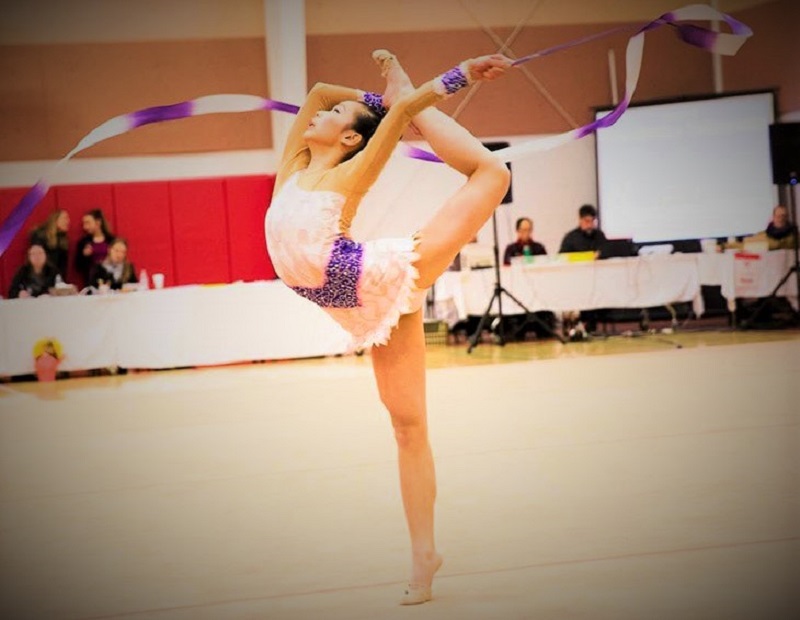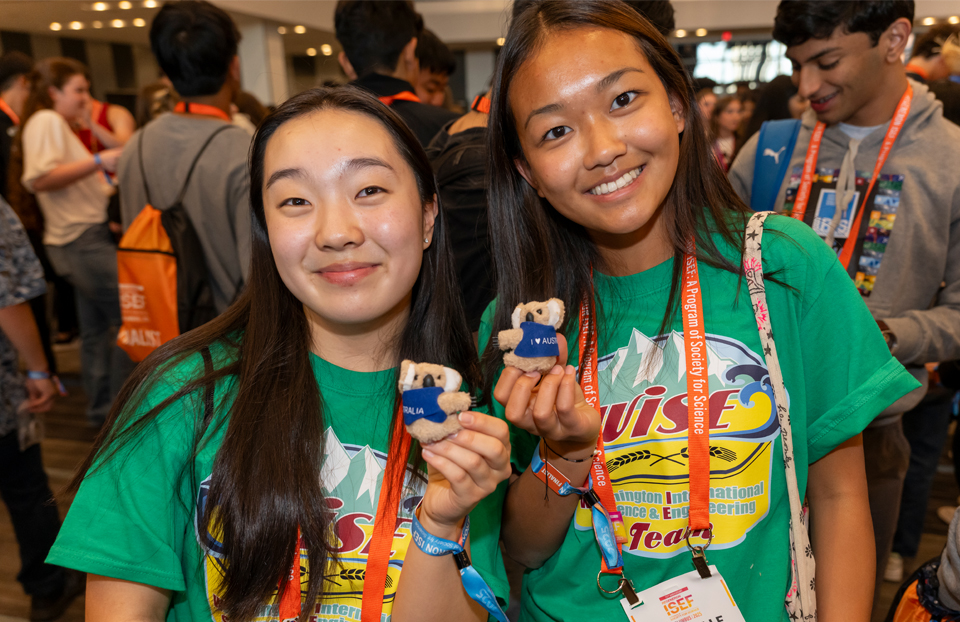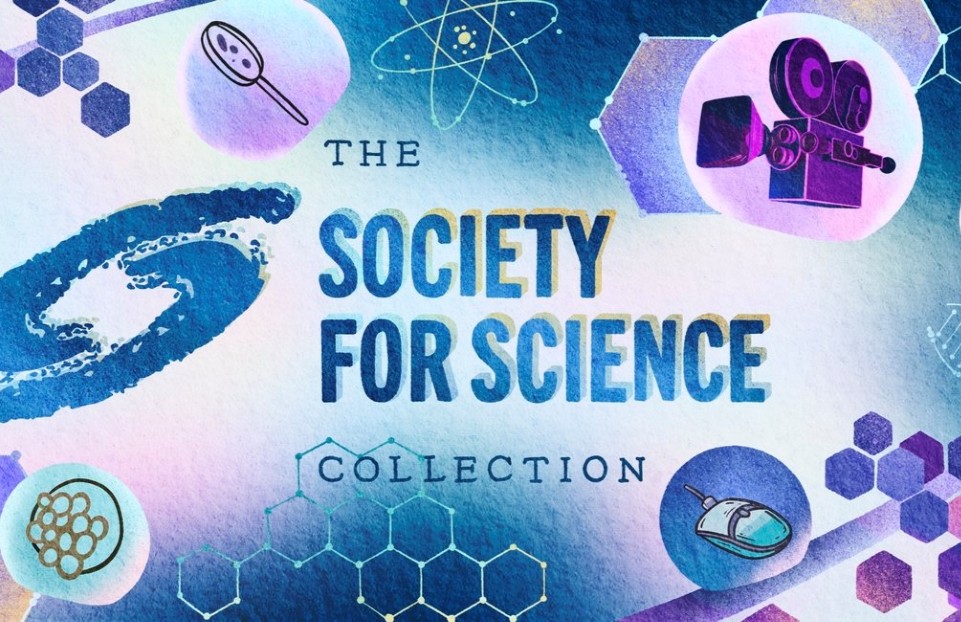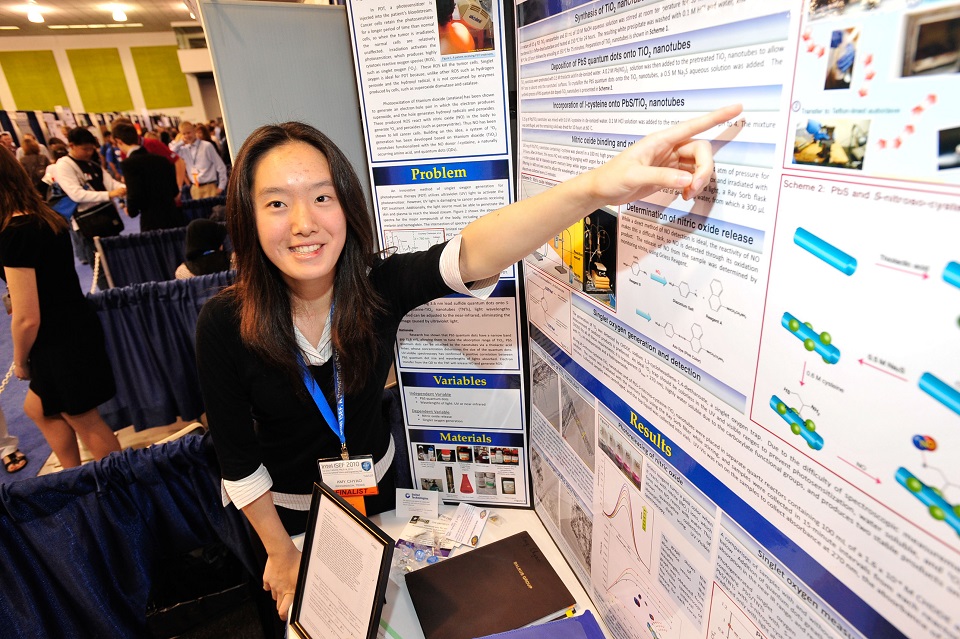Five questions with Michelle Hua, the top winner of the 2021 Regeneron ISEF

Michelle Hua, a rising junior at Cranbrook Kingswood School in Bloomfield Hills, Michigan, won this year’s first place $75,000 George D. Yancopoulos Innovator Award, the top prize at the 2021 Regeneron ISEF. Michelle won top honors over 1,800 participants from around the world for her project involving a smartphone app and algorithm that uses machine learning to accurately analyze human movements. She was also the first girl to win the top prize in over a decade.
Michelle’s winning project was initiated by both her affinity and enthusiasm for computer science, but also her desire to improve her form in a sport she loves — rhythmic gymnastics. Merging elements from gymnastics, dance and calisthenics, rhythmic gymnastics involves intricate moves using apparatus such as hoops, balls or ribbons. To help her train during COVID-19, since in-person coaching was not possible, Michelle invented an app that used human silhouettes and a novel deep learning framework to call her out when her form was off. “Feedback from the app helps users correct their position to prevent any exercise-related injury,” Michelle says.
In the coming year, Michelle plans to continue doing computer science research and applying artificial intelligence to more real-world applications. She says, “As a competitive rhythmic gymnast for nearly ten years, I plan to continue competing and improving in the sport I love. Specifically, I am planning on improving the coaching app that I integrated my action recognition algorithm in.” She would like to add more exercises to her app, expanding her tech to coaching for other sports, including golf swing, pitching and batting in baseball and kicking in soccer. Let’s hear more from Michelle below!
What was the most interesting part of having ISEF be a virtual event?
For me, the most interesting part of having ISEF be a virtual event was using Event Farm to interact with other finalists! Upon entering Event Farm for the first time, I was excited to see so many people online and interested in learning about each other’s projects!
What was your favorite or most memorable experience from virtual ISEF? And why?
My favorite memory from virtual ISEF was watching the virtual Grand Award Ceremony because all the ISEF finalists from Michigan gathered for the first time in person at a movie theater to watch it. Everyone was extremely supportive of each other. When one of our names was called as an award winner, there would be endless cheering and clapping. I am super glad to be part of such an amazing group of people that went through virtual ISEF this year!
Which sci-fi advancement do you wish we had by now?
I wish that we would have portals to teleport us wherever we would like to go! Ever since I was young, road trips have always been my nightmare. Being cramped in the backseat of the car with no Wi-Fi does not sound like the best start to a vacation — for me at least. But, if portals were invented, in a quick snap of the fingers, we could teleport to any location we wished! Especially with the COVID-19 pandemic, portals could reduce the contact that we have with other passengers.
Which scientist – alive or deceased – would you want to solve scientific mysteries with and why?
I would love to work and solve scientific mysteries with Yann LeCun, the first to introduce the idea of Convolutional Neural Networks (CNNs). Since my action recognition algorithm is inspired and based on CNNs, I would love to work with the inventor of CNNs themselves!
What would you invent if you had all the resources in the world?
If I had all the resources in the world, I would want to invent a device that can help recall memories (something like a Pensieve for all the Harry Potter fans out there). From fond memories to long mathematical equations, this memory-storing device can encapsulate anything! Imagine never having to flip through thousands of textbook pages to find the one concept you are looking for; a quick look into your memories could get the job done efficiently and a lot less stressfully!


